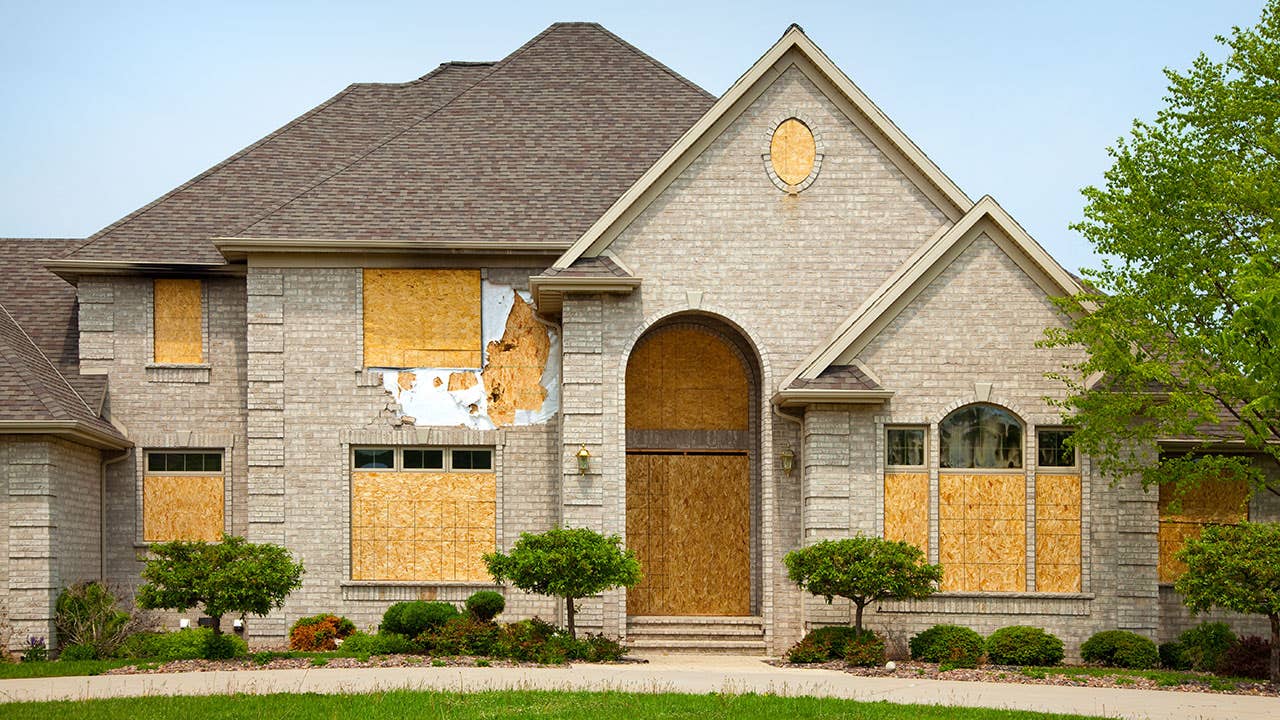Where To Find Foreclosure Homes For Sale
Have you ever realized that up to 1 in 20 homes in the U.S. can face foreclosure each year? This daunting figure reveals a market ripe with opportunities for those seeking properties at a fraction of their market value. Navigating this realm, however, requires a strategic approach to uncover these hidden gems.
Historically, foreclosure listings were a well-guarded secret, but technology is changing the game. Online platforms and local auction events are now teeming with opportunities, making the search more accessible than ever. With over 40% of foreclosures never seen on the open market, plugging into these resources opens windows to exclusive deals.

Where to Find Foreclosure Homes for Sale
Foreclosure homes are properties that banks or government agencies take back from homeowners who can’t pay their mortgage. You can find these homes on a variety of platforms. Online real estate websites are a good start, featuring special sections for foreclosures. They offer a convenient way to browse properties without leaving your home. Additionally, these sites often provide detailed property info and photos.
Auction events are another major source for finding foreclosed homes. These events often take place either online or at physical locations. The bidding process can be exciting but also requires careful planning. It’s smart to research ahead of time and understand the auction rules. Participating in an auction can yield great deals if you’re well-prepared.
Local banks can also hold foreclosure listings. It’s beneficial to reach out to them directly, as they sometimes have exclusive listings not advertised elsewhere. Visiting bank websites or talking with a branch manager might lead you to hidden deals. Moreover, this approach can offer direct access to the bank’s foreclosure inventory. This strategy can open doors to unique opportunities.
Using a real estate agent is another wise move when searching for foreclosures. These professionals have access to Multiple Listing Services (MLS) that include foreclosures. They can guide you through the process and help with paperwork. Their experience might also uncover deals you wouldn’t find on your own. Partnering with an agent can make the hunting process easier and more effective.
The Role of Online Platforms in the Foreclosure Market
Online platforms have completely changed the way we find foreclosure homes. These websites offer easy access to hundreds of listings at the click of a button. From your living room, you can explore homes located anywhere. Many platforms provide detailed information, including property photos, history, and pricing. This transparency helps buyers make informed decisions.
Some popular online platforms for foreclosures include Zillow, Realtor.com, and Auction.com. These sites serve as central hubs where buyers and sellers connect. They update regularly, offering fresh listings and prices. Additionally, many platforms offer tools to track favorite properties or set alerts for new listings. This allows users to stay ahead of market trends.
With these platforms, you can also find valuable resources like forums and guides. These resources help even beginners become knowledgeable about the foreclosure market.
- Discussion forums offer tips from other buyers.
- Guides teach you how to evaluate properties effectively.
- Calculators help determine mortgage and renovation costs.
Online resources make the process less intimidating.
However, it’s important to be cautious online. Always verify the credibility of the platform and read user reviews before proceeding. Scams can exist, so safeguard personal information and consult with professionals when unsure. By practicing due diligence, you can make the most of these platforms without falling for fraud. Online tools can greatly assist you in finding the perfect foreclosure deal.
Foreclosure Auctions: A Hidden Resource
Foreclosure auctions are a treasure trove of opportunities for those seeking discounted properties. These auctions occur when a homeowner can no longer pay their mortgage, and the bank must recover their money. The homes are sold to the highest bidder, often at prices much lower than the market value. Attending these events can yield significant savings. With some research and preparation, buyers can make well-informed bids.
There are different types of foreclosure auctions, each with its own rules. Courthouse auctions are common, held by local governments in designated areas. Online foreclosure auctions are also growing in popularity, offering convenience and the ability to participate from home.
- Courtroom auctions: Where local properties go for sale.
- Online auctions: Allow bidding from anywhere.
- Site inspections: Sometimes possible before auction day.
Understanding these formats helps pick the best strategy for each auction type.
One crucial step before participating is to conduct a thorough property search. Buyers should inspect the property whenever possible to identify potential repairs or faults. This information aids in setting realistic bids. Consulting with real estate experts or lawyers can also clarify legal complexities. This preparation level arms buyers with confidence and insight.
Auctions can have risks, requiring careful attention to detail. Not every auctioned property offers a clear title, sometimes resulting in legal issues. Always read the terms and conditions of the auction policy first. Hidden costs can arise, so budgeting for repairs and fees is wise. By staying cautious, buyers can navigate the auction landscape smartly and successfully.
Leveraging Real Estate Agents for Foreclosure Deals
Real estate agents can be invaluable allies when searching for foreclosure properties. They have access to databases that provide detailed listings unavailable to the public. With their expertise, agents identify potential deals and help navigate the complexities of foreclosure purchases. This assistance can save buyers time and trouble. Moreover, agents often know about properties that haven’t hit the market yet.
Agents are well-versed in the documentation and legal aspects of buying foreclosures. With so much paperwork involved, having an expert handle the details ensures nothing is overlooked. This can prevent costly mistakes and streamline the closing process. Agents understand local laws and regulations, helping to protect buyers from unforeseen issues. Such experience is especially helpful for first-time buyers.
Communication with your real estate agent is key to success. Open discussion about budget, needs, and preferences allows an agent to tailor their search accordingly. Regular updates keep the process transparent and aligned with your goals. It’s important to ask questions and express any concerns you may have. This partnership fosters a productive search for the ideal foreclosure property.
A good agent can also assist with property evaluations.
- They can suggest trusted inspectors for home assessments.
- Provide insights on neighborhood trends and resale value.
- Offer advice on renovation possibilities to increase home value.
These services ensure you make informed decisions and smart investments. Proper evaluations prevent unwanted surprises after the purchase.
Partnering with an experienced real estate agent can lead to better deals and more rewarding outcomes. They often have connections with banks, lenders, and auctioneers, offering insider knowledge about upcoming foreclosures. Such networking opportunities can give you a competitive edge. Using this advantage, you are better positioned to spot great deals. Their insights can make the difference between a good investment and a great one.
Utilizing Bank and Government Listings
Banks and government agencies are important sources for finding foreclosure listings. Many banks maintain databases of their foreclosed properties. These listings often come with competitive prices because banks aim to sell quickly. Visiting a bank’s website or inquiring at a local branch can provide access to these exclusive deals. The process involves checking regularly, as these lists update often.
Government agencies also offer foreclosed properties, which are listed on their websites. The U.S. Department of Housing and Urban Development (HUD) is a notable example. Their site provides comprehensive information about available homes and purchasing procedures.
- Avoiding hefty real estate agent fees.
- Simplified buying process.
- Direct access to official property details.
Government listings can offer a straightforward path to home ownership.
One advantage of using these listings is increased transparency. Banks and government agencies typically disclose detailed information about the property. This can include past owner details, previous sale prices, and property condition reports. Such transparency allows buyers to assess value accurately and identify potential pitfalls. Having access to verified data helps in making confident decisions.
While these listings present great opportunities, some caution is necessary. Competition can be fierce, and properties sell fast. Being prepared and acting quickly can improve your chances of sealing a deal. Consider setting alerts on your phone for new listings. This vigilance can place you ahead in the queue, boosting your success in grabbing a good deal.
Combining bank and government listings with other resources can maximize your chances of finding the right property. This strategy provides a broader view of available foreclosures. It can also help spot trends and identify neighborhoods with potential growth. Balancing sources leads to better-informed investment decisions. Ultimately, leveraging these listings can unlock a world of unique foreclosure opportunities.
The Advantages and Risks of Buying Foreclosed Homes
Buying a foreclosed home can offer significant advantages, starting with price. These houses often sell below market value, providing savings for buyers. A lower price can make it easier to afford larger properties or better locations. Additionally, paying less upfront can free up funds for renovations or upgrades. This financial benefit makes foreclosures appealing to budget-conscious buyers.
Another advantage is the potential for instant equity. By purchasing at a reduced price and maybe investing in improvements, the property’s market value can rise. This can increase your wealth over time as the home’s value appreciates. Foreclosures can also be a stepping stone to entering competitive markets. With careful selection, such purchases can turn out to be wise investments.
Despite the perks, foreclosed homes come with certain risks. One major concern is the property’s condition, which might have been neglected during foreclosure. Repairs can add unexpected costs, impacting overall budgets.
- Unknown structural issues could arise.
- Hidden legal claims might exist.
- Limited property access delays inspections.
Being informed and cautious can mitigate these risks.
It’s important to conduct thorough do-diligence before buying a foreclosed home. This involves researching property history and possibly hiring a professional inspector. Real estate agents can offer guidance in understanding complex documents and contracts. Taking such steps minimizes surprises down the road and ensures a smoother buying process. By being proactive, you can better address potential challenges.
Balancing the opportunities and risks of foreclosures requires careful planning and strategy. While deals abound, they demand attention and know-how to navigate successfully. Building a team of experts, like agents and lawyers, enhances your ability to spot favorable deals. This collaborative approach improves confidence and reduces uncertainty in the buying process. Investing time and effort into this preparation can lead to rewarding outcomes.
Frequently Asked Questions
Discovering the ins and outs of foreclosure purchases can offer great opportunities for savvy buyers. Below are some common questions that arise when exploring the world of foreclosures.
1. What are the benefits of buying a foreclosed home?
Buying a foreclosed home often means purchasing at a price below market value. This can allow buyers to move into desired areas or larger properties with reduced financial strain. The savings on initial costs can be substantial, providing room in the budget for renovations or other investments.
Additionally, foreclosed homes can appreciate in value, especially with improvements. This creates potential for significant future equity and financial gain. Picking the right property means researching locations, comparing prices, and evaluating growth potential, ensuring a worthwhile investment.
2. What are the pitfalls of purchasing foreclosures?
Foreclosure properties can come with hidden issues needing attention. Structural problems or delayed maintenance might surface after purchase, incurring unexpected costs. Being aware of these risks helps prepare buyers for future repairs and challenges.
Another risk involves unclear titles, which can lead to legal disputes. It’s crucial to address potential legal or financial complications and ensure clear title access. Utilizing experts for inspections and legal advice can safeguard against unwelcome surprises.
3. How do I finance a foreclosure purchase?
Funding a foreclosed home purchase can involve conventional mortgages, especially for homes in good condition. However, some foreclosures require specific loans like the FHA 203(k) for repairs and upgrades. Consulting with lenders can clarify financing options and tailor choices to your needs.
Alternative financing includes hard money loans, offering quick access with flexible terms. While these loans carry higher interest rates, they suit properties needing significant work. Consider varying finance structures for the best fit according to property condition and buyer goals.
4. How can I assess a foreclosure property’s condition?
A property inspection is advised to identify any major issues. Professional inspectors evaluate structural elements, plumbing, and electrical work, providing an overview of required repairs. This information supports clear purchasing decisions and helps estimate renovation costs.
Besides formal assessments, visual checks can highlight problems like damaged roofs, mold, or drainage issues. Buyers should approach urban and rural properties with tailored concern, as their challenges can differ. Combining expert evaluations and personal observations ensures informed decisions.
5. What should I know about foreclosure auctions?
Foreclosure auctions can be fast-paced, requiring quick decisions amid competitive bidding. Attending these events demands prior knowledge of bidding procedures and auction terms, which vary by location. Preparation boosts confidence and outcome chances, providing potential to buy below market prices.
Participants should also be ready for immediate payment and paperwork commitments post-win. Arranging finances and logistics in advance secures a smoother auction experience. This readiness positions buyers for opportunities that auctions present, capturing valuable deals.
Conclusion
Exploring foreclosed homes opens up unique opportunities for significant savings and investments. By utilizing online platforms, attending auctions, and leveraging real estate agents, buyers can navigate this market effectively. Each method offers different benefits, requiring informed decisions to maximize advantages.
While the journey comes with risks, thorough research and professional guidance can mitigate potential pitfalls. Preparing financially and legally ensures smoother transactions. With the right approach, buying a foreclosure can be a profitable and rewarding experience.



